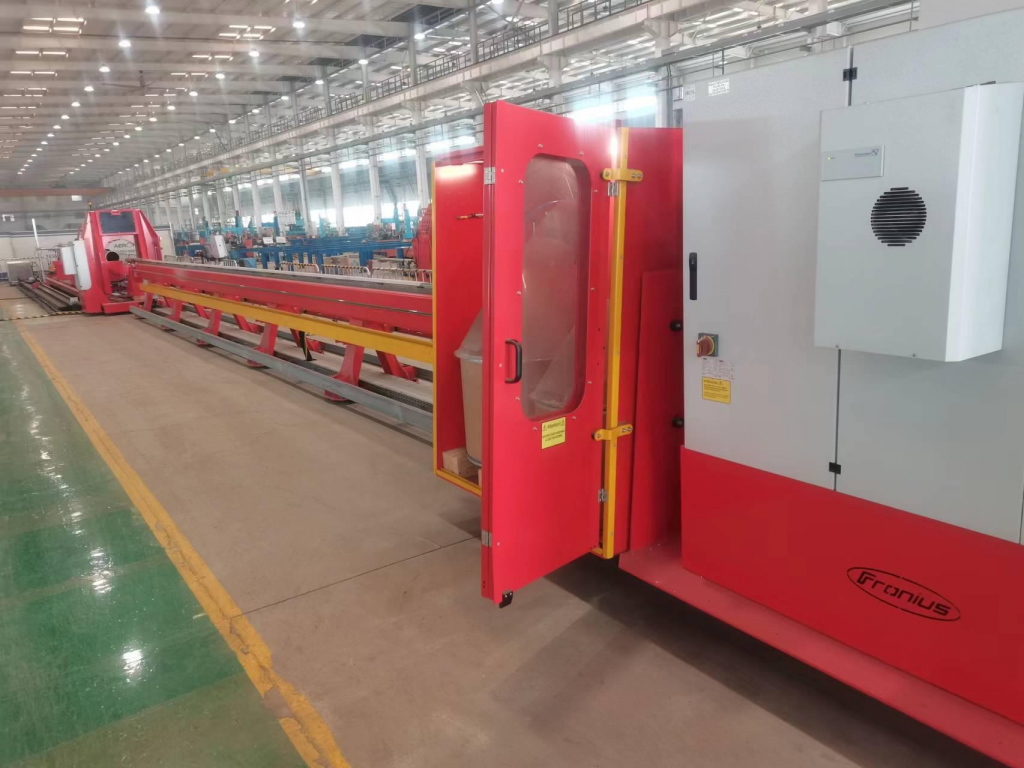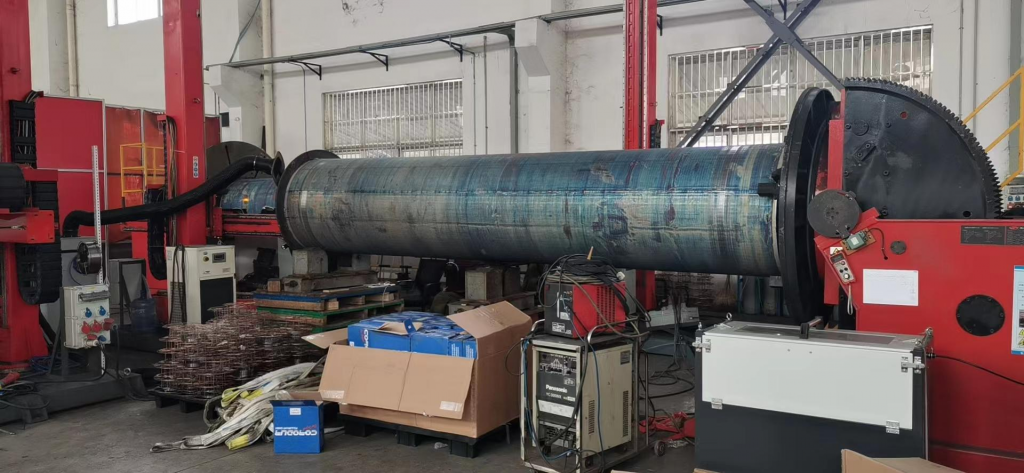Clad Pipe Manufacturing Process | High-Performance Pipeline Cladding by FNS Pipeline
The clad pipe manufacturing process is a highly sophisticated engineering feat, essential for producing pipes capable of withstanding the most aggressive industrial environments. Unlike conventional pipes, clad pipes feature an outer “base” material for structural integrity and an inner “cladding” layer designed to resist specific corrosive or abrasive conditions. This intricate manufacturing process ensures a robust, metallurgical bond between these two distinct materials, creating a superior product that delivers unparalleled longevity and performance in critical applications.

Automated clad pipe production for oil & gas applications
Step 1: Meticulous Material Selection and Preparation
The clad pipe manufacturing process typically begins with the precise selection and preparation of both the base pipe and the cladding material. The base pipe is usually made of carbon steel or low-alloy steel, chosen for its strength and cost-effectiveness. The cladding material, however, is a high-performance alloy such as stainless steel, duplex stainless steel, or nickel-based alloys (e.g., Inconel, Hastelloy), selected for its exceptional corrosion resistance, abrasion protection, or high-temperature capabilities. Thorough cleaning and preparation of both surfaces are paramount to ensure optimal bonding in subsequent stages.
Step 2: Creating a Strong Metallurgical Bond via Overlay Welding
The core of the clad pipe manufacturing process revolves around the metallurgical bonding of the cladding layer to the base pipe. The most prevalent method is weld overlay cladding, where the specialized alloy is deposited onto the inner surface of the base pipe using automated welding techniques. Common welding processes include Submerged Arc Welding (SAW), Gas Metal Arc Welding (GMAW), or Plasma Transferred Arc (PTA) welding. These methods are carefully controlled to ensure uniform deposition, minimal dilution between layers, and a consistent, defect-free metallurgical bond throughout the pipe’s interior. This precise deposition is a hallmark of an effective clad pipe manufacturing process.
Step 3: Post-Weld Treatments for Precision and Strength
Following the primary clad pipe manufacturing process of welding, post-cladding treatments are often applied to optimize the pipe’s properties. This may include heat treatment, which helps to relieve residual stresses induced during welding and can further refine the microstructure of both the base and clad layers. Mechanical processes such, as straightening and inner diameter machining, are also common to achieve precise dimensions and a smooth internal surface. These steps are crucial for maintaining optimal flow characteristics and preventing localized wear. Each stage in the clad pipe manufacturing process contributes to the final product’s integrity.

Corrosion-resistant clad pipeline used in oil & gas processing
Step 4: Rigorous Quality Testing and Certification
Quality inspection is an indispensable part of the cladding production workflow at every stage. Strict inspection protocols are implemented from material reception to final product delivery.
At FNS Pipeline, we implement strict non-destructive testing (NDT) protocols throughout the workflow, including:
- Ultrasonic testing to verify bond integrity
- Radiographic inspection for internal defects
- Chemical composition analysis
- Mechanical testing to confirm strength and hardness
Mechanical tests, chemical analysis, and visual inspections also play crucial roles, guaranteeing that the finished pipe meets stringent industry standards and client specifications. A comprehensive clad pipe manufacturing process prioritizes uncompromising quality.
Why Clad Pipes Are the Smart Choice
Pipes manufactured through this advanced process deliver major benefits:
- Extended service life in corrosive and high-temperature environments
- Reduced maintenance costs and fewer shutdowns
- Enhanced safety by minimizing leaks and failures
- Lower total cost of ownership over the pipeline’s life cycle
From offshore oil platforms to chemical processing plants, clad pipe systems are the proven solution for reliability and durability.
Partner with FNS Pipeline for Advanced Clad Pipe Solutions
At FNS Pipeline, we specialize in custom clad pipe manufacturing using advanced welding technologies and strict quality control. Our team of engineers ensures each product is tailored to your exact operating environment, providing maximum corrosion resistance, structural integrity, and long-term cost savings.
Looking to extend the service life of your pipeline infrastructure? Get in touch with FNS Pipeline for tailored clad pipe manufacturing solutions that deliver performance and value.


